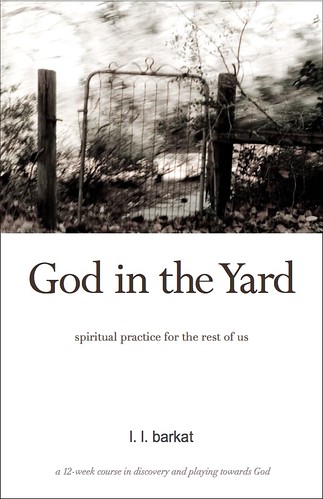World-Wide Study: Blogging Good for Heart, Brain and Bank Account

Recently I decided to share how blogging has changed my life (perhaps most profoundly by meeting many marvelous people like Scot McKnight, Marcus Goodyear, Christine Scheller, Ann Voskamp... the list goes on!) Along with that, I launched an informal survey. Call it a meme if you must; that's how it passed 'round the blogosphere.
Now, I've done studies before— the kind that hire $100-an-hour statisticians to tell what the final scoop is. Or the kind that require hours upon hours of literature research in fusty journals. But the real fun has been doing this kind of study: ask people from around the world to self-report on how blogging has changed their lives. Then sit back and enjoy the view. Oh, and get some free philosophy too.
By now, I've read a lot of 5-ways-blogging-has-changed-my-life blog posts (not to mention one that declared Blogging Hasn't Changed My Life.) And I've linked to the responses I found through Technorati, Google Alerts or comments here on Seedlings (that's only fair, since I asked participants to link back to me).
Sure it was work. But it was fun work. At this point, the responses are finally slowing down, so I'm ready to to give the report (not to worry, new participants: I'll keep giving links as last responses keep coming). I hope you like the grandiose but semi-accurate title, World-Wide Study: Blogging Good for Heart, Brain and Bank Account.
In the spirit of the original meme, ahem...study, let me report the top five ways blogging has changed our lives. Some of these are top because they came up over and over again. Others are top 'cause I just want them here. Also, I'll include a little philosophy at the end. I like philosophy.
1. Blogging is good for the heart. I'm no statistician and I didn't bother counting, but almost every post I read involved the issue of real, valid, happiness-inducing social connection. People meet each other through blogging. They end up having coffee together. Or parking their RV's in each other's driveways. They cross the nation to take walks arm in arm. All this social connection is cheaper than therapy. (And blogging may just BE good therapy too, as Scientific American reports.) Yes, blogging is good for the heart.
2. Blogging is good for the brain. I remember reading Alan Jacobs' scathing estimation of blogging in Books and Culture. Said he, in marvelously academic style, blogging is the enemy of thought. I've also heard various pundits complain that computers are stealing our love of reading right out from under our feet (our fingers? our eyes?). Maybe these things are true for some, but over all, it appears that blogging encourages us to write and write and read more, watch less TV, think more, be creative, communicate better, even try out new personas. (By the way, two physician/learning specialists concur that blogging is good for the brain.)
3. Blogging is good for the backside. In other words, some of us have put on a few pleasing pounds for the sake of happiness-inducing social connection.
4. Blogging produces insomnia, sleep deprivation and messy houses— things which are potentially bad for the brain (here's where we need our statistician to help balance things out with some kind of numerical acrobatics that compare blogging's brain influence pluses and minues... but I'll leave that to the good women and men who decide to conduct a similar study for their phd's)
5. Blogging is good for the bank account, even if only in a small way or through the opportunity to get free stuff. (Also, check out this post for a podcast about making money through blogging)
Of course blogging has changed us in other ways too. But I only promised the top 5. And I kept my promise. I did not break the rules. Which brings us to our philosophical moment...
When I first posted the meme, I thought about how I'm always breaking meme rules. Why is that? (You can email me privately if you've got deep spiritual answers or L.L.-psychological-evaluation answers to that question.) Accordingly, when faced with crafting my own rules, I decided to make them simple, flexible and possibly fun.
Anyway, it came to my attention through a private email and this post that rules may just be followed more if they appear to ask less. Said one blogger, Indeed, the permission to break the rules is the main reason I responded, as I generally dislike memes and getting tagged, and all that goes with it. It reminds me a little of the Garden of Eden, the Fall, Jesus, and how all this constitutes a move from 'thou shalt not' to 'grace'.
So that's it. Blogging changes lives... and invites us to inhabit philosophical space.
Eiffel Tower in Blue photo, by Sara B. Used with permission.
RELATED:
LL's Stress Causes Brain Damage
Labels: affects of blogging, blogging, brain















